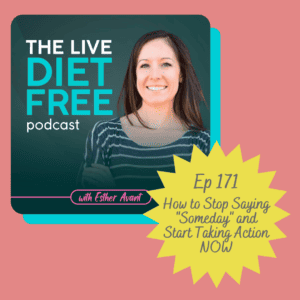It’s not a topic people like to discuss with the world so you’d probably be surprised how frequently clients mention GI distress/Inflammatory Bowel Disease/Irritable Bowel Syndrome/and other similar issues. So if you think you are the only one silently suffering, you are not. In fact, you would be surprised how frequently clients bring this up to me. While you might not want to discuss your bathroom issues with the world, you probably would like some relief from them, which is why I asked an expert in this area to weigh in on some real-life tips that can help you manage these sorts of things.
Alexa Federico, of Girl in Healing has been navigating life with Crohn’s disease for 10 years by mainly relying on diet to manage her symptoms. She is a Boston-based twenty-something studying nutritional therapy. She has a lot more info about her healing journey and how you can thrive with an autoimmune disease on her blog (linked above) & the article below is a great place to start!
I do want to note one thing before I hand it over to Alexa & that is that the foods she is going to discuss below are not inherently bad for you. She is talking about these foods specifically in the context of helping treat IBD so if this is not something that is an issue for you, there is no reason that you can’t continue to enjoy these foods. In the second part of the blog, in fact, Alexa discusses how to know if you have a negative reaction to these foods. Just wanted to clarify that so that your take-away is not to eliminate these foods for no reason. Carry on.
3 Foods to Avoid When You Have Inflammatory Bowel Disease (IBD)
Having lived with Crohn’s disease for 10 years now, I have learned certain foods are problematic for most people with IBD and autoimmune disease in general. However, IBD is unique in that there is not one diet that works for everyone. Below are three common problem foods and how you can figure out which ones are worsening your symptoms.
Gluten
It might feel like everyone’s ragging on gluten these days, but it’s for good reason. Gluten is a protein found in many grains, like wheat, barley and rye. It’s not just used for bread products anymore. Gluten is added in products we wouldn’t expect as a thickener. Overexposure to gluten, plus that it has been modified from its original form is causing it to contribute to leaky gut syndrome, autoimmune disease, and other types of chronic illness.
Because IBD is a disease in which the body repeatedly attacks healthy cells that it mistakes for foreign invaders (here is where “chronic” comes in), this causes inflammation. Therefore, people with Crohn’s disease and Ulcerative colitis want to stick to mainly anti-inflammatory foods. Gluten is an inflammatory food that irritates the gut and should be removed from the diet.
Dairy
Dairy is often problematic for people with IBD, but some forms are better tolerated than others. I do fine with grass-fed butter, but most other forms of cow dairy including milk, cream, yogurt, and most cheeses trigger symptoms. Others find they do well with grass-fed yogurt or kefir, or even cream.
When beginning your healing journey with Crohn’s or Ulcerative colitis, one should eliminate all dairy and reintroduce it later when symptoms are under control. If dairy from cows proves to be an issue after a period of elimination, it’s possible that dairy from goats and sheep will be tolerated.
Sugar
Like gluten, sugar has found it’s way into a plethora of foods it has no business being in. Next time you are food-shopping check out the ingredients and amount of sugars in salad dressings, ketchup and other condiments, bread products, yogurt, and more. To add a layer of confusion for the consumer, sugar isn’t always labeled as “sugar.” Some popular forms of sugar are corn syrup, high fructose corn syrup, cane sugar, and cane syrup.
We are overloaded with sugar as a country. Sugar has many detrimental affects on our gut, including producing more inflammation. Just what someone with a chronic inflammatory condition like Crohn’s disease or Ulcerative colitis doesn’t need.
Eliminating refined sugar doesn’t mean you cannot eat anything sweet again. There are some healthier alternatives! Raw organic honey, real maple syrup, coconut sugar, and stevia are a few sweeteners that can replace refined sugar. Keep in mind that while these contain health benefits, they should still be consumed in small quantities.
Besides causing inflammation and irritating the gut, sugar has long rap sheet of health issues it’s related to.
How to Figure Out Your Problem Foods
The best way to figure out what foods are helping you heal and which are hindering your progress is to eliminate certain foods for a period of time and then reintroduce them once at a time. This is known as an elimination diet.
Gluten, dairy, and sugar along with corn, soy, nightshade vegetables, eggs, legumes and caffeine are foods I recommend removing from your diet. Be sure to eliminate any foods that you already know are bothersome. This should be done for at least one month, or until symptoms have improved, which may be longer than one month. It takes different people longer or shorter periods of time for their bodies to detox the foods producing inflammation.
When reintroducing foods, it should always be done one food at a time so that there is no question which food is sparking symptoms, if they arise. Waiting a few days in between food reintroductions also ensures that there is no overlap.
During the reintroduction phase, it is important to keep a food journal. By tracking what you eat, at what time, symptoms that occur and your bowel movements, you will be able to see connections between your diet and your health.

For more info on Alexa & managing autoimmune disease or GI issues with diet, head over to her blog Girl In Healing!




